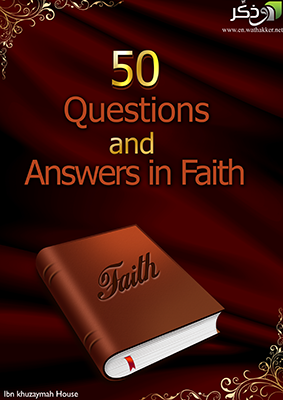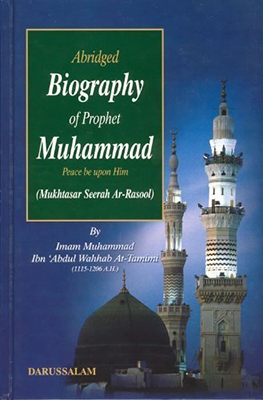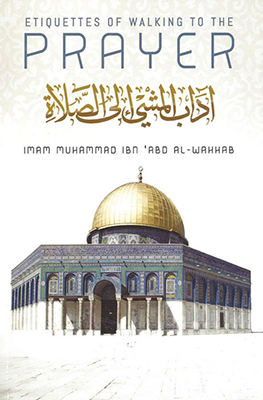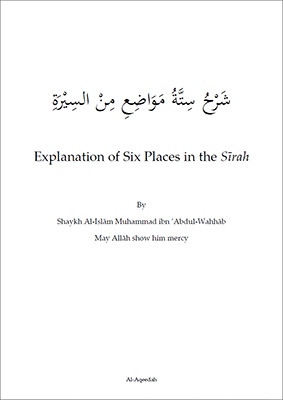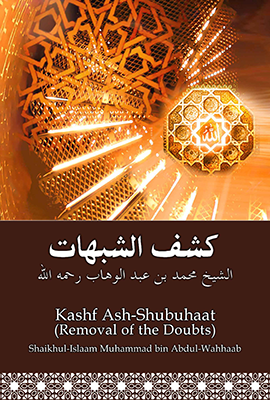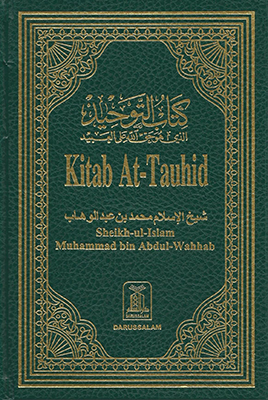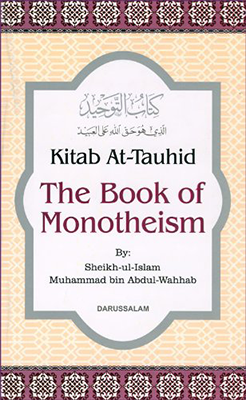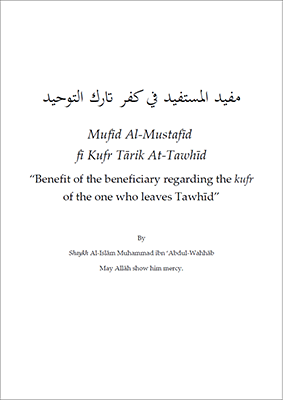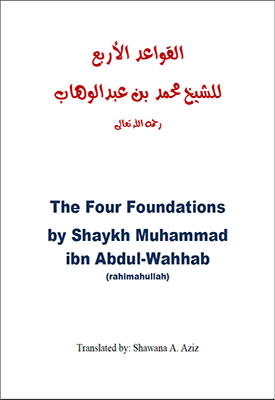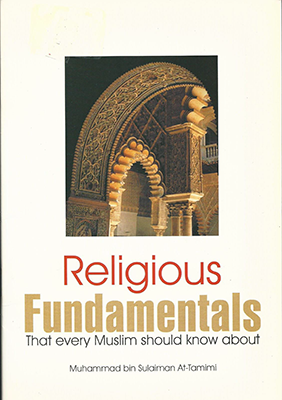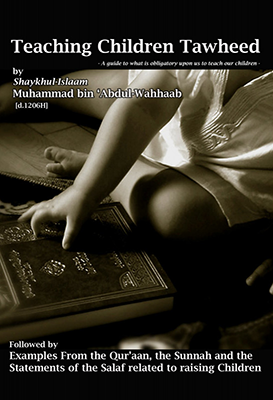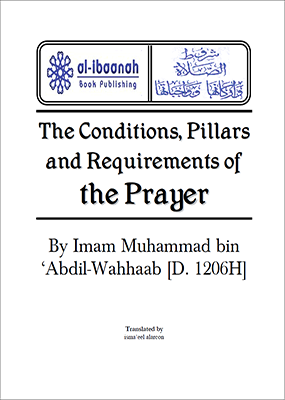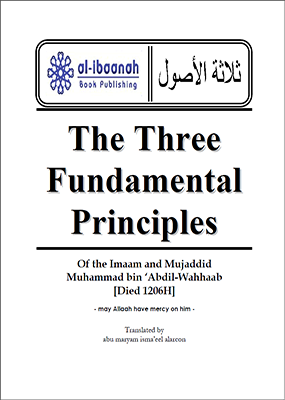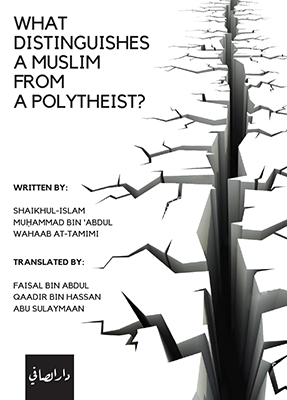Shaykh al-Islam Muhammad ibn Abdul-Wahhab comes from the well-known tribe of Tameem. Many authors trace Muhammad ibn Abdul-Wahhab’s lineage all the way back to the early Arab Adnan. For the purposes here, it is sufficient to state that he was Muhammad ibn Abdul-Wahhab ibn Sulayman ibn Ali.
Muhammad ibn Abdul-Wahhab was born in al-Uyaynah in 1115 A.H. (1703 or 1704 C.E.) into the Family of Musharraf of the tribe of Tameem. Since the Tenth Hijri Century, this family was known for its religious scholars and leaders.
His Family
Muhammad’s grandfather Sulayman ibn Ali was probably the greatest scholar in Najd during the Eleventh Century. He was the judge of al-Uyaynah and the religious reference concerning disputed fiqh issues for the other scholars in the area. His students included his sons Abdul Wahhab, Ibrahim and Ahmad. Ibrahim was a scholar in his own right, writing a number of works and traveling to different areas to give religious rulings. However, he lived most of his life close to his brother Abdul Wahhab. Ahmad ibn Sulayman and Ibrahim’s son Abdur-Rahman were also known to be scholars.
Finally, Muhammad’s father Abdul-Wahhab was also a scholar and a judge in al-Uyaynah. He was specialized in fiqh and wrote some books on various fiqh topics. However, his status as a scholar never reached the level of his father Sulayman. Muhammad ibn Abdul-Wahhab’s older brother Sulayman was also known to be a serious student.
Thus Muhammad was born into a family well-known for its devotion to knowledge and learning. Most likely, this laid down a firm foundation for his future advances in learning and his dedication to the faith. In addition, the sources also state that he was very intelligent and had a strong memory. They describe him as not liking to waste his time in the games that the other children played. He memorized the Qur'an by the age of ten. He studied with his father who was very impressed with his abilities, saying that he has benefited from his son Muhammad on some points. He reached puberty around the age of twelve and his father found him qualified to be the Imam for the prayers and appointed him as such. His father then married him off at the age of twelve (not an uncommon age at that time and place) and gave him permission to perform the Hajj. (He performed the Hajj, went to Madinah, where he stayed for two months, and then returned to al-Uyaynah.)
Early Studies
Ibn Abdul-Wahhab studied Hanbali fiqh with his father. In addition, he used to study books of tafseer (Quranic commentary) and hadith, as well as books on tawheed (Islamic monotheism). He was known both to have a good memory as well as being quick in transcribing. In particular, he was drawn to the books of Ibn Taymiyyah and Ibn al-Qayyim. He personally transcribed many of the books of Ibn Taymiyyah, and some of those manuscripts are still in existence at the British Museum. The influence of those two great scholars on him became very obvious in his own writings and letters. Most likely it was through their works that he developed his great insight into the meaning of tawheed (Islamic monotheism) and the other aspects of beliefs, an insight that many who simply study fiqh may be lacking.
Travels to Attain Knowledge
Traveling for the purpose of attaining knowledge has been a practice of Muslim scholars since the earliest days of Islam. Muhammad ibn Abdul-Wahhab was no exception. These travels probably had a great impact on Muhammad’s thinking and intellectual development. It opened his mind to other areas, other practices and maybe even other ways of thinking. At the same time, though, it allowed him to witness firsthand the extent to which Muslim populations had strayed from the way of the Prophet (peace and blessings of Allah be upon him).
Al-Uthaymeen notes that two questions remain unanswered in the historical works about Muhammad ibn Abdul-Wahhab. The first concerns the exact year whence Muhammad began his travels. The second concerns exactly how long Muhammad stayed in different locations. He notes, for example, that no work states Muhammad’s age when he left al-Uyaynah. In any case, al-Uthaymeen concludes that he must have left al-Uyaynah before reaching the age of twenty.
After returning from his first Hajj and then studying with the scholars of his hometown, Muhammad again set out for Hijaz. Perhaps, he still had memories of his pilgrimage and he wished to return to that land to increase his knowledge. He set out for Makkah and performed the Hajj again. It is said that he studied with the scholars of Makkah. However, there seems to be no mention of whom he studied with while in Makkah. This gives the impression that he did not study long there and, instead, he moved on to Madinah.
In Madinah, he was faced with an academic environment that was very much different from that of al-Uyaynah. For example, in al-Uyaynah, the emphasis of study was on Hanbali fiqh. In Madinah, on the other hand, scholars and students from all over the world were present. Different schools of fiqh as well as all of the other branches of Islamic sciences were taught there.
Muhammad studied under a number of scholars present in Madinah at that time. These scholars included Ali ad-Daghistani and Ismaeel al-Ajaluni. However, the scholars that Muhammad was definitely closest to were first Abdullah ibn Ibrahim ibn Saif and then later Muhammad Hayat as-Sindi (who, according to al-Uthaymeen, had the greater impact on Muhammad ibn Abdul-Wahhab). Al-Uthaymeen notes that these two had a great impact on Muhammad ibn Abdul-Wahhab’s thinking at a time when he was still very impressionable. These two not only conveyed knowledge to Muhammad but they set him on his path as a reformer.
The first one mentioned above, Abdullah ibn Ibrahim, was a Hanbali jurist and a scholar of hadith. He passed on all of his works from al-Bali to Muhammad ibn Abdul-Wahhab, including all of the standard works of hadith and hadith commentaries traced back via chains to their original authors. Both Abdullah and al-Bali were very much impressed with Ibn Taymiyyah and it is more than likely that Abdullah encouraged Muhammad ibn Abdul-Wahhab to read ibn Taymiyyah’s works. Furthermore, Abdullah was well aware of the situation in Najd, having originally come from that area. He was able to discuss with Muhammad the many evil practices that the people of that land had fallen into. In fact, one time he asked ibn Abdul- Wahhab, “Do you want to see the weapons that I have prepared for al-Majma [his family’s original hometown]?” When ibn Abdul-Wahhab replied, “Yes,” Abdullah took him to a house wherein many books were stored and he said, “These are the weapons I have prepared.” This incident demonstrates that Abdullah, ibn Abdul-Wahhab’s early teacher, knew that “weapons” were needed for the people of al-Majma in Najd, meaning that they had strayed and a strong tool would be needed to correct them. In a way, he showed ibn Abdul-Wahhab that the strongest tool against their evil practices was the true knowledge that should make clear to them the falsehood they were on and show them the way to the straight path.
It was Abdullah who introduced ibn Abdul-Wahhab to as-Sindi and recommended him as a student. Ibn Abdul-Wahhab and as-Sindi became very close and ibn Abdul-Wahhab stayed with him for some time. As-Sindi was a great scholar of hadith. He was also well known for repudiating innovations, objecting to polytheistic practices and calling to ijtihad (scholarly juristic reasoning) — all salient features of Muhammad ibn Abdul-Wahhab’s later teachings. In fact, ibn Abdul-Wahhab’s great grandson Abdul-Lateef ibn Abdur-Rahman said that as-Sindi had the greatest influence on ibn Abdul-Wahhab with respect to tawheed of worship, freeing oneself from blind obedience (taqleed) and preoccupying oneself with the study of the Book and the Sunnah.
Return to al-Uyaynah and Travels to Basra and al-Ahsa
After spending some time in Hijaz, acquiring knowledge at the feet of its great scholars, ibn Abdul-Wahhab returned to al-Uyaynah. At that time, he must have still been fairly young (in his early or mid twenties perhaps) and he was still not in a position of influence and stature wherein he could eradicate the evils that he saw around him. He could offer his views on some occasions but not much more than that was available to him. Instead he further concentrated on his studies, especially the writings of ibn Taymiyyah. (It seems that ibn Abdul-Wahhab was very attracted to reading — again, especially the writings of ibn Taymiyyah and ibn al-Qayyim. Al-Ajilani even said that most of his knowledge was self-taught, coming directly from the Quran, the Sunnah and such writings. However, it cannot be doubted that he studied under a number of scholars and was very close and greatly influenced by many of them, such as his father.)
According to one report, he stayed in al-Uyaynah for one year before setting out again for the purpose of study, perhaps realizing that he needed more study and maturation before truly being able to reform his people.
Damascus was the center for the Hanbali school. With his background in Hanbali fiqh and his desire to learn more of the writings of ibn Taymiyyah (who lived most of his life in Damascus), it is natural that ibn Abdul-Wahhab would desire to go to Damascus. However, his journey to Damascus would first take him to Basra, where he remained for some time.
Basra was a prosperous, metropolitan trade center. In addition, it was home to many Shiites. It probably exposed ibn Abdul-Wahhab to many things that he had not witnessed in his native Najd (although he probably would have witnessed some aspects in Hijaz).
In Basra, he studied fiqh, hadith and Arabic language. He studied with Shaykh Muhammad al-Majmu’i. It was in Basra that Muhammad ibn Abdul-Wahhab began to object to some of the innovations, heresies and polytheistic acts that he saw around him. In particular, he stressed that all worship must be directed to Allah alone. (In fact, according to one report, he wrote his Kitab at-Tawheed during this stay in Basra.) It seems, that al-Majmu’i supported him in those efforts. However, those who supported him were greatly outnumbered by those who opposed him and often times the debates between them would become heated.
Al-Uthaymeen notes that Muhammad ibn Abdul-Wahhab greatly benefited from his stay in Basra in three ways: (1) He increased his level of knowledge, especially in fiqh, hadith and Arabic language; (2) He became exposed on a very close basis to the beliefs and practices of the Shiites; (3) The opposition and arguments he faced gave him some training in how to answer and repel the doubts and questioners.
Ibn Abdul-Wahhab was met with much opposition, to the point that he was forced to leave Basra in the heat of the midday, walking barefoot. While on the road between Basra and az-Zubair, ibn Abdul-Wahhab was about to die of thirst. A resident of az-Zubair, known as Abu Humaydan, found him. Feeling that ibn Abdul-Wahhab was a very respectable looking person, he gave him water and led him to az-Zubair. Muhammad stayed there a few days but wanted to depart to Syria. However, he had somehow lost the needed money for such a trip (perhaps it had been stolen from him). Hence, he decided to return to Najd via the eastern province of al-Ahsa.
At that time, al-Ahsa was a center of learning for all of the four schools of fiqh. Many students from Najd flocked to that area. Ibn Abdul-Wahhab studied there with a number of scholars from different schools. He studied and stayed with Abdullah ibn Muhammad ibn Abdul-Lateef ash-Shafi’ee (discussing with him some of the issues of Ashari belief as found in ibn Hajr’s commentary on Sahih al-Bukhari). He also studied with Muhammad ibn Afaliq and Abdullah ibn Fairooz al-Kafeef.
After spending some time in al-Ahsa, ibn Abdul-Wahhab left to Huraimila in Najd, where his father had now moved to.
Huraimila and the Beginning of the Call (Da'wah)
Ibn Bishr mentions that upon his return, Muhammad studied under his father. Al-Uthaymeen says that that may be correct but by that time, Muhammad’s own level of knowledge had probably exceeded that of his father. If so, he could have done this simply out of respect for his parent.
In any case, it was in Huraimila that Muhammad began his public da'wah activities. He began to give lessons in the mosque. These included lectures on hadith, fiqh and Quranic commentary. A large number of people attended these lectures and greatly added to his prestige. This was a practice that ibn Abdul-Wahhab would continue throughout his entire life, even when he was one of the leaders of a state. He also started to object to the heresies and polytheistic practices of the people around him.
Muhammad spent much of this time concentrating on his studies in fiqh, hadith and tafseer. He wrote Kitab at-Tawheed during this time (or he may have “rewritten and revised” it if the report that he actually wrote that book while in Basra is correct).
When Abdul-Wahhab died, Muhammad was about thirty-eight years old. With the death of his father, he became the leading scholar in the area. He became more open in his teaching and calling of others to the straight path. He openly criticized the abundant innovations and heresies. He began to order what is good and eradicate what is evil. His reputation spread to the surrounding areas. Students began to flock to Huraimila to study with him. Even some of the surrounding ameers began to be influenced by or attracted to him, including Uthman ibn Muammar, the Ameer of al-Uyaynah.
The earliest chroniclers do not mention the exact year in which Muhammad ibn Abdul-Wahhab moved to al-Uyaynah. Apparently, it was not immediately after his father’s death but after a year or two, in other words around the year 1155 A.H.
Residence in al-Uyaynah
Upon his arrival in al-Uyaynah, Muhammad ibn Abdul-Wahhab was very much welcomed and honored by its ruler. Upon meeting with him, Muhammad ibn Abdul-Wahhab explained the fundamental principles of his teachings. He explained to him that this belief was the key to success in both this life and the Hereafter. He further explained to them that the key to their relationship was the support of the statement, “There is none worthy of worship except Allah.” Ibn Abdul-Wahhab told the Ameer, “I hope that, if you truly work to support the belief in, ‘There is none worthy of worship except Allah,’ Allah will make you strong and give you the dominion over Najd and its Bedouins.” These principles were accepted by the Ameer Uthman and Muhammad was given a free reign to preach the pure Islam. The relationship between the two grew and, in fact, Muhammad ibn Abdul-Wahhab ended up marrying Uthman’s aunt, al-Jauharah bint Abdullah bint Muammar, a very influential woman in the area.
At the time, people of al-Uyaynah used to revere and seek blessings from a number of trees and bushes in the area. Furthermore, there was a grave nearby in al-Jubail that was supposedly the grave of Zaid ibn al-Khattab (the brother of Umar ibn al-Khattab), who had died in that area while fighting the great liar Musailamah. People would go to that grave and seek blessings there, slaughter animals on its behalf, make oaths and so forth. With a very short period of time, Muhammad ibn Abdul-Wahhab was able to remove all of these sources of polytheism from the land.
Muhammad ibn Abdul-Wahhab set out with six hundred armed men and their leader Ameer Uthman to bring an end to the pilgrimage site at the grave of Zaid ibn al-Khattab. He demanded that Uthman join them on this expedition as otherwise he feared that the people of al-Jubailah would fight them. Indeed, the oasis dwellers of that area were going to try to defend their place of worship. When they saw that they were greatly outnumbered and that Uthman’s people were ready and willing to fight, they did not fight and ibn Abdul-Wahhab himself took an axe and began the demolishing of the tomb.
Going well beyond the simple removal of polytheistic practices, ibn Abdul-Wahhab attempted to create a true Islamic society in al-Uyayna. The laws of the Shari'ah (Islamic Law) were to be implemented in every aspect of life — superseding any customs or practices that contradict them. In particular, he insisted on the performance of the prayers — actually not just the performance of the prayers but their performance in congregation in the mosque.
During this time, a woman came forward to Muhammad ibn Abdul-Wahhab to admit her crime of adultery. She wanted to be purged of her sin -much like the woman who came forward to the Messenger of Allah (peace and blessings of Allah be upon him) to purge herself of the same sin. Ibn Abdul-Wahhab behaved exactly like the Prophet (peace and blessings of Allah be upon him) himself. He made sure that the woman was not insane, was not raped and that she was making the confession of her own free will. After meeting the necessary conditions, ibn Abdul-Wahhab had the woman stoned, with Uthman himself throwing the first stone. Then ibn Abdul- Wahhab ordered that her body be washed, wrapped in a shroud and have the funeral prayer performed for it. All of this was both her wish and completely in accordance with Islamic Law.
Al-Uthaymeen notes that this action on the part of the woman reflects how greatly the call of ibn Abdul-Wahhab had penetrated the hearts of the individuals of that society. Indeed, it became a new society as before ibn Abdul-Wahhab’s time, there was no great alarm over evil practices such as adultery. However, this woman felt so much sorrow over her act that she came to have herself purified of the sin.
Due to the threat of this new moral tendency and the complaints that he had received, Sulayman, the Shaykh of the Tribe of Khalid, ordered that Uthman either kill Muhammad ibn Abdul- Wahhab or expel him from his land. Uthman acquiesced. Ibn Abdul-Wahhab tried to convince him to remain patient and that the help of Allah would come to them if they would remain true to the faith. Ibn Abdul-Wahhab told him, “This thing that I have established and am calling people to is the statement, ‘There is none worthy of worship except Allah,’ the pillars of Islam, ordering good and eradicating evil. If you adhere to it and support it, Allah will give you dominance over your enemies. Do not let Sulayman worry you or frighten you. I hope that you will see establishment in the land and power such that you will control his land and what is beyond it and what is before it.” Uthman was shy, and evil people around him convinced him to acquiesce to the demands of the leader of al-Ahsa.
Finally, for whatever reason (fear of losing some of his wealth, cowardliness, fear of harm coming to his people through an attack from the Tribe of Khalid), Uthman told ibn Abdul-Wahhab that he could no longer afford to protect him. However, it was not becoming Arab honor that he should be killed while under his protection. Thus, Uthman told ibn Abdul-Wahhab that he would have to leave his city. This led to ibn Abdul-Wahhab’s migration to ad-Diriyyah in 1157 A.H. and his pact with its Ameer, an event in history whose ramifications are still being experienced today.
Muhammad ibn Abdul-Wahhab’s stay in al-Uyayna, although it ended in his expulsion, was definitely not a failure. His efforts were appreciated and when he left, Uthman sent with him a number of his horsemen to guard him on his journey to his new home. Furthermore, as Ibn Ghannam noted, no idols were left in the land of Uthman and the true religion had become well-accepted and clear to everyone there.
Migration to ad-Diriyyah
Ibn Bishr and ibn Ghannam give slightly different stories as to what occurred shortly after ibn Abdul-Wahhab’s arrival in ad-Diriyyah. Ibn Bishr relates that Abdullah ibn Suwailam hosted Muhammad ibn Abdul-Wahhab and he feared what would be the result of having someone of ibn Abdul-Wahhab’s notoriety in his house. A number of the leading people of the city were coming to the house to meet with Muhammad ibn Abdul-Wahhab. They finally approached the Ameer’s wife, Moodhi, who was impressed with ibn Abdul-Wahhab’s teachings, to have her convince the Ameer to greet and accept ibn Abdul-Wahhab. She told her husband, “This man coming to you is a bounty sent to you by Allah, so honor him, respect him and benefit by supporting him.” Muneer al-Ajilani, the specialist on Saudi history, discounts this narration. He argues that it is inconceivable that a person of such fame could have entered the city without the Ameer knowing about it and that he would be visited by some of the leaders of the city secretly. In fact, al-Ajilani concludes that Muhammad ibn Abdul-Wahhab moved to ad-Diriyyah at the invitation of Muhammad ibn Saud. Furthermore, al-Uthaymeen has come across a monograph written by the Najdi historian ibn Laboon that states explicitly that ibn Abdul-Wahhab moved to ad-Diriyyah at the invitation of its Ameer Muhammad ibn Saud.
Al-Uthaymeen states that, regardless of whether ibn Abdul-Wahhab was invited to ad-Diriyyah or not, the story as given by ibn Bishr is definitely weak, given what is known about the environment at that time. However, he notes that both ibn Bishr and ibn Ghannam finally agree that the Ameer Muhammad ibn Saud did go to the house of ibn Suwailim and welcomed ibn Abdul-Wahhab there, promising him support and protection. Ibn Saud told him, “Have glad tidings of a land better than your land. Have glad tidings of honor and strength.” Ibn Abdul-Wahhab replied to him, “And I give you glad tidings of honor and being established in the land. As for the statement, ‘There is none worthy of worship except Allah,’ whoever adheres to it, abides by it and supports it will then have authority over the land and the people.” At that point, ibn Abdul-Wahhab explained to the Ameer the principles of his teachings. He explained to him what the Prophet (peace and blessings of Allah be upon him) and his Companions were following, that every heresy is misguidance, that Allah honored the believers through jihad and that much of what the people of Najd were following at that time was nothing but shirk, heresies, oppression and wrongdoing. The two agreed to work together to spread those noble principles.
Both ibn Ghannam and ibn Bishr agree that ibn Saud laid down a stipulation in this agreement between them. He made ibn Abdul-Wahhab promise that he would not leave the land of Diriyyah for some other land after they had fought together for the sake of Allah. Ibn Abdul-Wahhab agreed to this condition, using the same expression the Prophet (peace and blessings of Allah be upon him) used in a similar agreement. Thus, an alliance was made based on the principles of the religion of Allah and His Messenger, jihad for the sake of Allah, implementing the principles of Islam, ordering good and eradicating evil.
Now with the true freedom to spread his message, ibn Abdul-Wahhab concentrated on teaching and giving lectures in the mosque. Large numbers benefited from his explanations of some of the most basic concepts of Islam—concepts that the people there had become unfamiliar with (and unfortunately even today many Muslims remain unfamiliar with). In addition to the locals of ad-Diriyyah, many supporters, students and others who heard of ibn Abdul-Wahhab’s call were flocking to ad-Diriyyah. Many of them came from the ruling families of their locales. Others who came were quite poor and were forced to work at night and so attended the lectures during the daytime, as ibn Bishr noted. Muhammad ibn Abdul-Wahhab noticed the hardship that they were facing and he began to borrow money from wealthier people to help meet some of the expenses of the poorer students. To meet some of their needs, it is even narrated that ibn Abdul-Wahhab established a kind of “brotherhood” between those who migrated to ad-Diriyyah and the residents of ad-Diriyyah, much like the Prophet (peace and blessings of Allah be upon him) did with the emigrants to Madinah and the residents of Madinah.
Around these devoted students of Islam, Muhammad ibn Abdul-Wahhab developed a new Islamic state and society. The law of Islam was the law of the land. People had a new-found respect for the Quran and Sunnah. The prayers were attended, zakat was given and so forth. In fact, Muhammad ibn Abdul-Wahhab recognized that establishing such a society was part of his responsibility as a person whose words and directives were listened to. After stating that he is a person whose instructions are heeded, he wrote in a letter, “I oblige those under my authority to establish the prayers, give the zakat and perform the other obligations toward Allah. And I forbid them riba (interest), alcohol and other forbidden acts.”
After some time, it became apparent to Uthman ibn Muammar that he had made a mistake in asking ibn Abdul-Wahhab to leave al-Uyaynah. He went with a number of nobles from his clan to meet with ibn Abdul-Wahhab in ad-Diriyyah and to request him to return to al-Uyaynah. Ibn Abdul-Wahhab’s response was that the matter was in the hands of Muhammad ibn Saud who wisely declined Uthman’s request.
During his first two years in ad-Diriyyah, besides lecturing and teaching, ibn Abdul-Wahhab stepped up his campaign of writing to other scholars and rulers to join the call and the new state. Some of his letters turned out to be quite fruitful. Huraimila and Manfoohah (just south of Riyadh) seemed ready to join with ad-Diriyyah. However, other city-states refused. At that time, people started to call him a sorcerer, accuse him of innovations, accuse him of lying and so forth, just like they did with the Prophet (peace and blessings of Allah be upon him).
A New Stage in the Call (Da'wah): Jihad
The year 1159 A.H. marks a turning point in the call. After trying to convince the people of Najd via peaceful means to give up their polytheistic acts and heresies, the time had come for the use of force. Ibn Ghannam described the environment behind this
momentous change:
[Ibn Abdul-Wahhab] continued to call to the path of his Lord with clear proofs and beautiful admonition. He did not first call anyone a disbeliever and he did not begin any aggression. Instead, on all those points he hesitated as an act of piety on his part and in the hopes that Allah would guide those who were astray. [This continued] until they all rose up against him with enmity. They cried out in all the lands, declaring [ibn Abdul-Wahhab] and his followers disbelievers and they permitted the spilling of their blood. They did not affirm their false claims with proofs from the Book of Allah or the Sunnah of His Messenger (peace and blessings of Allah be upon him). They were not concerned with the crimes of falsehood and libel that they perpetrated against him. Nor were they concerned with what were the consequences of that in the form of punishment and banishment for his followers. Even though, he [ibn Abdul-Wahhab], may Allah have mercy on him, did not order the spilling of blood or fighting against most of the people of misguidance and desires until they started by making the judgment against him and his followers that they are to be fought and that they are disbelievers. At that time, the Shaykh gave the command of jihad to his group and encouraged his followers to fulfill it. And they executed his command.
The land of Najd was well-accustomed to raids and skirmishes between the tribes, Bedouins and city-dwellers. Such was nothing new. Indeed, that was the manner by which a tribe’s rule would be expanded or strengthened. However, in the past, those expeditions
were meant basically for worldly purposes. They were not done in the name of Islam, with the hope that they would help spread the Islamic state and bring more followers into its fold. Thus, although the methods of the new state were much the same as what Najd was familiar with, the purpose and the goal behind the fighting was much different. Speaking about this background, Ibn Abdul-Wahhab wrote to some who used to fight and now that the jihad had come were hesitant,
O' Allah, how strange!… You used to fight against Ibrahim ibn Sulayman [the Ameer of Tharmada] due to one word he would say about your neighbor or due to a donkey worth about twenty dollars that he would take from you. For that, you would sacrifice your wealth and your men… Today, Allah has given you the religion of His prophets which is the price of Paradise and freedom from the Fire, and now you are acting cowardly?
Furthermore, this new state was truly under the leadership of a religious scholar and reformer. Although Muhammad ibn Saud (and later Abdul-Azeez ibn Muhammad) was officially the political leader, Muhammad ibn Abdul-Wahhab still had a great influence over the affairs of the state. In general, all important matters were taken to him for a final decision. This included, as ibn Ghannam and ibn Bishr noted, matters related to zakat, finances, concluding peace treaties, sending of armies and so on. Muhammad ibn Abdul-Wahhab would also send emissaries to other leaders as well as meet and host other’s delegations. Hence, the whole intent and drive behind this new state was under the leadership of this religious scholar and was thus completely different from what Najd had previously witnessed.
Ibn Ghannam, the closest and earliest chronicler, states that the first clash between the supporters and the opponents of Muhammad ibn Abdul-Wahhab came when Dahham ibn Dawwas, the leader of Riyadh, attacked Manfoohah (just south of Riyadh), which was in alliance with ad-Diriyyah. It seems that the only reason he attacked Manfoohah was because it was in alliance with ad-Diriyyah. Due to the alliance, ad-Diriyyah had no option but to come to the defense of its partner. Thus, as ibn Ghannam noted, the first fighting that took place was actually in self-defense, assisting one of the call’s partners. Indeed, Muhammad ibn Abdul-Wahhab himself stated in a letter to Abdul-Rahman al-Suwaidi, “As for fighting, until today we have never fought anyone except in the defense of life and honor.”
By this time, ad-Diriyyah had become a strong and unique force in Najd. People from all over the area, from various tribes, had come to join the group of Muslims under the guidance of Muhammad ibn Abdul-Wahhab. Their morale was very high and they were ready to fight for their new noble purpose. There is no doubt that the presence of such a city-state in that region would arouse the fears of “the powers that be” at that time. Indeed, by the time of the incident of Manfoohah, the opponents of Muhammad ibn Abdul-Wahhab were virtually already beating war drums. They were declaring Muhammad ibn Abdul-Wahhab and his followers disbelievers whose blood was permissible to be shed. Hence, Muhammad ibn Abdul-Wahhab and his followers’ lives were truly in danger. An armed battle with ad-Diriyyah may have been beyond the means of some, so they resorted to other measures to try to fight and destroy the strength of the new collection of believers. Indeed, the opponents of the call went outside of Najd for help and assistance in trying to stop the sweeping call.
In fact, in Huraimila itself, in the year 1165 A.H., there was a kind of revolution against Muhammad ibn Abdul-Wahhab. This was instigated by its judge, Sulayman ibn Abdul-Wahhab, Muhammad’s own brother. Sulayman even tried to convince the inhabitants of ad-Diriyyah to revolt. He wrote a book attempting to refute ibn Abdul-Wahhab, especially in matters related to declaring Muslims disbelievers and issues of fighting, and sent it to the inhabitants of ad-Diriyyah. Muhammad ibn Abdul-Wahhab quickly responded by writing a refutation of Sulayman’s book. Abdul-Azeez ibn Muhammad ibn Saud was able to lead a force of around eight hundred men to quell the unrest in Huraimila. Sulayman fled to as-Sudair. Similar small uprisings occurred in Manfoohah and Durma, but they were both quieted. Within Najd, thus, it can be said that all the attempts — the use of force and the use of false arguments — failed to stop the growth and strength of this collection of Muslim.
His Death
Shaykh Muhammad ibn Abdul-Wahhab died in Shawwal 1206 A.H. (1791/1792 C.E.). He lived some ninety-two years. When he died, though, he did not leave behind any wealth. Nothing was distributed to his heirs. Even though it is well known that the jihad brought forth a good deal of war booty for his followers, all of the wealth that he had received was spent for the cause and in assisting others. By the time of his death, he had seen his teachings spread throughout all of Najd and much of al-Ahsa. Ibn Abdul-Wahhab had also already seen the first signs of its potential against the leaders of the Hijaz.
His Personality
He was known to be very humble and beloved to the people. Ibn Bishr stated,
We have not heard of anyone softer or kinder than him to the students of knowledge, to the questioner, to the one in need…
He was also very generous and simple, never fearing poverty and never attracted by the riches of this world. Although after some time the treasury of ad-Diriyyah began to have great wealth and although he was the leading spiritual figure and teacher, he did not take any stipend from the public treasury. He would distribute any wealth he would receive and was often in debt due to his taking care of students, guests and travelers. When he died, he left behind no wealth—in fact, he had debts that were paid by others on his behalf.
He was not overbearing when it came to his opinions. When he was unaware of something, he would readily admit that. He would make statements like, “I do not know anything concerning that issue.” In a letter he wrote to a group of scholars, he said about himself, “I do not claim to be free of mistakes.” He would not be adamant about his personal opinions nor blindly stick to any scholar or school. In the same letter referred to above to a group of scholars, ibn Abdul-Wahhab also stated, “If I give a ruling or perform any deed and you your brother Muslim.” On another occasion he wrote, “I find in myself that I love for someone to advise me whenever I am mistaken.” Again, in another letter, he wrote, “If the truth is with them [that is, his opponents] or if we have some truth and some falsehood or we have gone to an extreme in some matter, then it is obligatory upon you to point it out and to advise us and to show us the statements of the people of knowledge. Perhaps, through you, Allah will guide us back to the truth.”
Ibn Bishr wrote,
[Ibn Abdul-Wahhab’s] excellence and virtues are too much to count and more famous than need be mentioned. If I were to detail those matters, the pages would not be sufficient… It is enough for his virtues that as a result of him heresies were removed, the Muslims were united, the congregational prayers and Friday prayers were held, the religion was revived after it was lost and the roots of shirk were cut after they had been planted.
His Works
Some of his well known works are as follows:
- Kitab at-Tawhid
- Kitab al-Kaba'ir
- Kashf ash-Shubuhat
- Mukhtasar Seerat Ar-Rasul
- Masail al-Jahiliyah
- Usul al-Iman
- Fadail al-Qur’an
- Fadail al-Islam
- Majmu’ al-Ahadith
- Mukhtasar al-Insaf wa ash-Sharh al-Kabeer
- Al-Usul ath-Thalatha
- Adab al-Mashi ila as-Salat
Summarised from The Life, Teachings and Influence of Muhammad ibn Abdul-Wahhab pp. 7-64 By Jamal ad-Din Zarabozo.
Also see, Muhammad Ibn Abdul-Wahhab by Shaykh Ahmad Musa Jibril.

